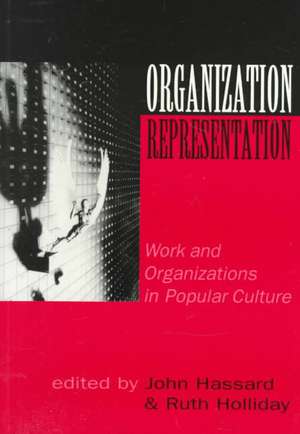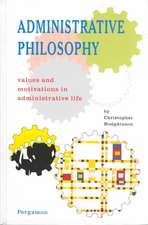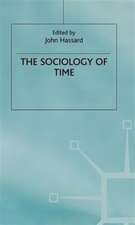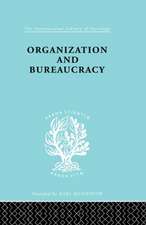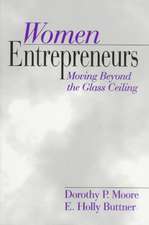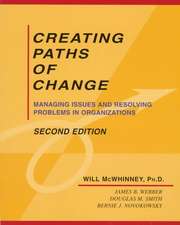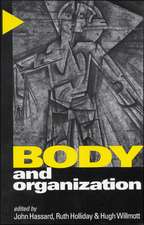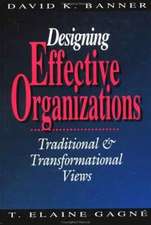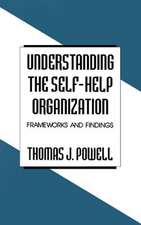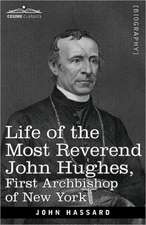Organization-Representation: Work and Organizations in Popular Culture
Editat de John Hassard, Ruth Hollidayen Limba Engleză Paperback – 9 feb 1998
Preț: 493.03 lei
Preț vechi: 580.03 lei
-15% Nou
Puncte Express: 740
Preț estimativ în valută:
94.37€ • 98.14$ • 79.08£
94.37€ • 98.14$ • 79.08£
Carte tipărită la comandă
Livrare economică 13-27 martie
Preluare comenzi: 021 569.72.76
Specificații
ISBN-13: 9780761953920
ISBN-10: 0761953922
Pagini: 288
Dimensiuni: 156 x 234 x 15 mm
Greutate: 0.4 kg
Ediția:New.
Editura: SAGE Publications
Colecția Sage Publications Ltd
Locul publicării:London, United Kingdom
ISBN-10: 0761953922
Pagini: 288
Dimensiuni: 156 x 234 x 15 mm
Greutate: 0.4 kg
Ediția:New.
Editura: SAGE Publications
Colecția Sage Publications Ltd
Locul publicării:London, United Kingdom
Recenzii
`This is a unique, fascinating and valuable treatment of material and issues which have been ignored in 'mainstream' organisation studies. Read this and you will never again watch an episode of Casualty, The Bill or Silent Witness without boring your companion with critical commentary on the portrayal of hierarchy, sex role stereotyping, power relations, the role of authority figures and dysfunctional rules' - Human Resource Management Journal
`This worthwhile collection gathers together a series of essays dealing with the representation of social organizations in the popular media...The quality of analysis in all the contributions to this volume is consistently high, and the material covered is extensive. The book will prove useful on media/cultural studies courses as well as those concentrating on the sociology of organizations' - European Journal of Communication
`This worthwhile collection gathers together a series of essays dealing with the representation of social organizations in the popular media...The quality of analysis in all the contributions to this volume is consistently high, and the material covered is extensive. The book will prove useful on media/cultural studies courses as well as those concentrating on the sociology of organizations' - European Journal of Communication
Cuprins
Introduction - John Hassard and Ruth Holliday
PART ONE: REALISM AND REPRESENTATION
The Documentary Film Movement - Ian Aitken
The Post Office Touches All Branches of Life
Representing Reality - John Hassard
Cinema Verit[ac]e
The Cultural Representation of Trade Unions - Peter Stead
PART TWO: SEX AND VIOLENCE
What Is Wrong with This Picture? Sex and Gender Relations in <i>Disclosure - Joanna Brewis
Philadelphia - Ruth Holliday
Aids, Organization, Representation
Saloon Girls - Maggie O'Neill
Death and Desire in the American West
PART THREE: MEN AND SUPERMEN
Child's Play - Christopher Grey
Representations of Organization in Children's Literature
Management Gurus - Norman Jackson and Pippa Carter
What Are We To Make of Them?
Fictional Money (Or, Greed Isn't So Good in the 1990s) - Linda McDowell
Masculinity and Madness - Rolland Munro
PART FOUR: ORGANIZATIONAL FUTURES
Cyberorganization - Martin Parker and Robert Cooper
Cinema as Nervous System
Computers and Representation - Warren Smith
Organization in the Virtual World
The Medium as Message - J Martin Corbett
Sublime Technologies and Future Organization in Science Fiction Film, 1970-95
PART ONE: REALISM AND REPRESENTATION
The Documentary Film Movement - Ian Aitken
The Post Office Touches All Branches of Life
Representing Reality - John Hassard
Cinema Verit[ac]e
The Cultural Representation of Trade Unions - Peter Stead
PART TWO: SEX AND VIOLENCE
What Is Wrong with This Picture? Sex and Gender Relations in <i>Disclosure - Joanna Brewis
Philadelphia - Ruth Holliday
Aids, Organization, Representation
Saloon Girls - Maggie O'Neill
Death and Desire in the American West
PART THREE: MEN AND SUPERMEN
Child's Play - Christopher Grey
Representations of Organization in Children's Literature
Management Gurus - Norman Jackson and Pippa Carter
What Are We To Make of Them?
Fictional Money (Or, Greed Isn't So Good in the 1990s) - Linda McDowell
Masculinity and Madness - Rolland Munro
PART FOUR: ORGANIZATIONAL FUTURES
Cyberorganization - Martin Parker and Robert Cooper
Cinema as Nervous System
Computers and Representation - Warren Smith
Organization in the Virtual World
The Medium as Message - J Martin Corbett
Sublime Technologies and Future Organization in Science Fiction Film, 1970-95
Descriere
The representation of organizations and working life in the popular media signifies, but also helps shape, contemporary practice and institutions. Organization-Representation unravels the complex social relationship between organization and its representation, offering new insights into the interaction between the popular images we create and receive, and the power relations that govern society, working life and culture.
Representations in Hollywood movies, ethnographic and documentary films, children's literature and the popular and `quality' press replicate the power structures they supposedly describe and consequently help shape contemporary realities. This volume offers rich insights into the relations between cu
